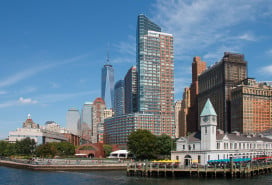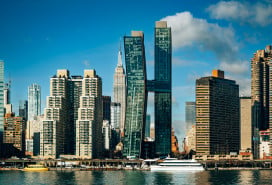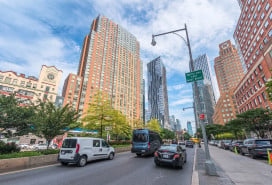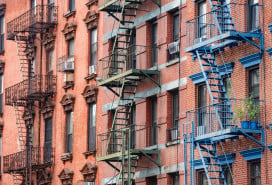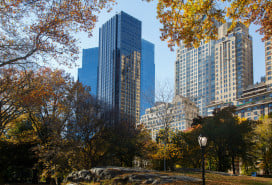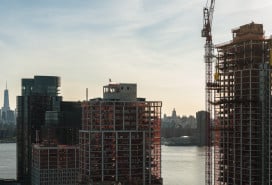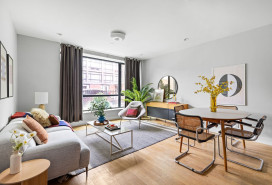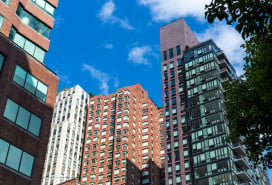What does luxury real estate mean when everything is called "luxury"?
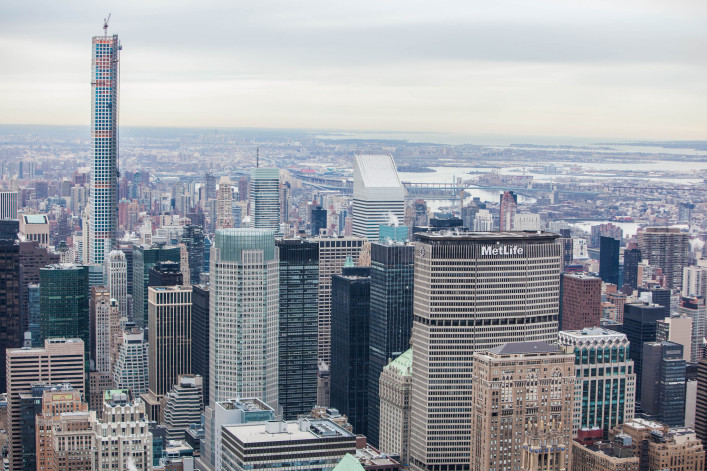
On a recent cab ride through Manhattan, I gazed out the window as building after building whizzed by. Many of them had bright, bold signs with the words “LUXURY” sprawled out in a sans-serif font. The adjective was slapped on everything from renovated tenements in the East Village to postwar units at Stuy-Town to giant, looming towers from the 1960s in Kip’s Bay, and glasssy new construction several blocks north.
But surely all of them couldn’t be full-blown luxury buildings? Isn’t that a little like calling both a fast food combo and a three-course meal “fine dining”?
Curious, I decided to reach out to some people well-versed in the matter. Turns out, "luxury" in 2015 is just as subjective—and overused—a term as you probably suspected it is. “Luxury is one of those ‘L’ words, along with ‘location’ and ‘leverage,” said Jonathan Miller, president of appraisal firm Miller Samuel and author of Douglas Elliman's market report. That's to say, it's used so much in New York City real estate that it's almost completely devoid of meaning. (To wit: the Observer called its use "baffling common" back in February.) A true luxury apartment is technically one that’s in the top 10 percent of transactions in the market, by Miller's metrics. That means all of the towering skyscrapers on Billionaire’s Row, and not that new “luxury” condo in Williamsburg that’s being rented out for $4,000 a month.
Then again, as with many lifestyle-oriented commodities, one person's basic is another person's bliss. Brokers we spoke to generally agree that luxury tends to be in the eye of the beholder—and often, in the (likely more optimistic) eye of the broker.
It also comes in different levels. There's the highest tier that Miller mentioned. And according to Stribling broker Confidence Stimpson, it's comprised of “very tall buildings with spectacular views that are designed by a ‘starchitect’ with a prestigious address and lots of amenities” like dog spas, a concierge, porters, on-site parking, and swimming pools. This can also include ultra-private luxury buildings without doormen (the better to cater to celebrity residents), Stimpson notes.
For the non-moguls among us, luxury has a lesser, but equally as important, definition. It could mean a doorman to take deliveries, a cleaning person that tidies up, central air conditioning, or a wine room or screening room, according to Stimpson. On top of that, many new construction buildings in Brooklyn and Queens are using other more Millennial-focused amenities to lure luxury seekers, including beer tasting rooms, yoga studios, bowling alleys, and even arcades, shifting the definition of what even constitutes luxury for a new generation of moneyed buyers and renters.
“The definition of luxury is subjective,” says Laura Cao, a high-end broker with Douglas Elliman. “It’s just what you take of it.” She said that as a New York University student some 15 years ago, her definition of luxury was just an apartment with newer amenities. “Now, my definition has changed a lot,” she commented with a wry smile.
Still, she says, even if your idea of luxury might just be an apartment with functional utilities and an A/C unit, "[the term] shouldn't be used as often as it is," citing quote-unquote "luxury" rentals using gimmicks like new countertops to lure in tenants. "It's misleading."
Another word for it? Aspirational marketing.
Many brokers use the term luxury as a status symbol, as a means of showing off your wealth and prosperity relative to those around you. So what if you’re spending a few thousand bucks to live in an East Village tenement like this one? At least you’re getting a 24-hour gym (though this one looks a little on the sad side) as well as a 24-hour doorman.
However, over-use of the L word isn’t exactly new to the building boom following the Great Recession. There are plenty of references to new luxury apartments in the postwar era in the New York Times, including a 1968 article talking about the prestige factor of running an ad for a luxury apartment that's entirely in French (ah, the eternal appeal of the wealthy foreign buyer)[paywall]. And in the 1980s, for instance, “the only seeming definition of luxury seemed to be that it had a doorman," says Miller. As expectations grow and potential buyers and renters can cross-check hundreds of listings on the internet, competition has naturally gotten more fierce—and broker-speak in listings has gotten more elaborate.
That said, if you're looking to wade through the white noise in listings, the experts we spoke with tended to agree a few points of what could reasonably be defined as luxurious, including such tangible amenities as an in-unit washer and dryer. Others, like dishwashers, aren't really all that luxurious, and simply slapping a granite countertop on an otherwise lackluster apartment doesn't land it the "L" word either.
Other qualities, like a feel of exclusivity and rareness, can’t be quantified so easily.
“Part of the luxury element is that the owner feels they have something unique, but I don’t mean someone is living in a wreck of an apartment with original detail,” Miller said. “The problem is 75 percent of all apartment marketing uses the word luxury. Part of it is people want to dream.”
That means, the word "luxury" for most New Yorkers is a case of semantic satiation. Translation? The more you hear a word repeated over and over, the less meaning it holds.
Still, despite the capricious nature of the word, don’t expect “luxury” to go anywhere soon.
It's my own personal hope that brokers and real estate professionals can create a new word to create tiers of luxury. Perhaps "luxe" implies something that's hipster chic, while scrumtrulescent could be adapted for units on Billionaire's Row. But based on the history of it, its universal appeal (and understanding), it's a one-size-fits all term that is, contradictorily, cliche and overused but not really broker babble.
As a journalist, I haven't had the luxury of caring about luxury. In my many apartment hunts throughout the years, I've looked for space, location, and price. An in-house gym isn't really worth an extra few hundred a month, and like certain camera-shy celebrities, I enjoy my privacy. Though I wouldn't say no to a washer/dryer or outdoor space, I find "luxury" (in quotes) to be a raison d'être for most landlords to raise rents, meaning that you're often paying a disproportionate amount of rent for something as basic as non-functional as "artisanal lighting."
And Miller agrees.
“Luxury is just a descriptive word that gets the job done,”he concedes. “It could be anything you want it to be. Luxury is a vanity term, and I doubt if that’ll go out of style anytime soon. “
Related:
5 apartment "dealbreakers" that aren't—and 4 to never ignore
Start popping bottles—your apartment probably qualifies as "luxury"
"Yoga room," "loft-like," and more broker buzzwords decoded
Space is still the only amenity that matters (that, and maybe a roofdeck)

